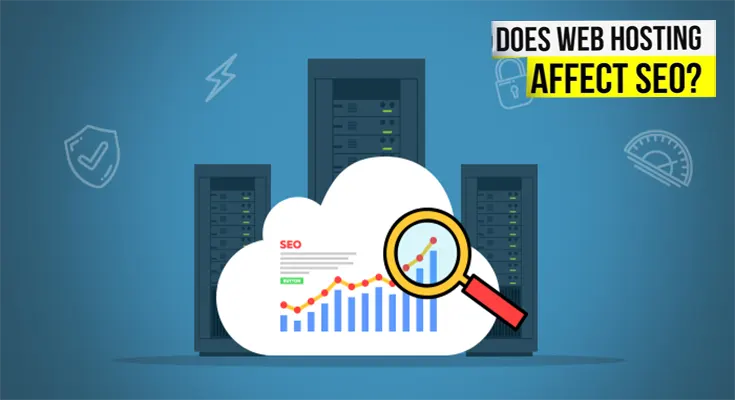Conducting an SEO ranking check regularly helps ensure your website maintains strong visibility and performance in search engine results. But do you know your website’s search engine optimisation ranking is very closely related to your web host in Australia?
The role of your web hosting package and provider goes beyond the websites and data. It affects your visibility, bounce rates, audience retention, Google ranking and much more. Your domain and hosting provider’s performance directly impacts your key technical aspects.
So, let’s learn how it affects the rankings and how you can improve search engine rankings.
How Web Hosting Affects Search Engine Rankings
● Loading Time
It is said that the acceptable time for your webpage to load is between 0 and 3 seconds. Ideally, it should be under 2 seconds. Due to the reduced attention span of your average customer, it is crucial to maintain this website’s loading speed.
Google’s search engine prefers fast-loading websites because they generally offer a better user experience. With a poor hosting plan, loading time is reduced, leading to lower SEO rankings.
● Website Speed
Website speed and ease of navigation are the ultimate tests of your website’s performance. If your website speed is slow due to a heavy webpage, high traffic or server issues, your visitors will leave. This increases the bounce rate, which search engines despise, resulting in poor SEO ranking checks.
With an unreliable web hosting service, inadequate resources, lack of scalability or any other scarcity, your website speed is affected. Faster websites offer better user experience and, hence, have higher Google rankings.
● Server Location
The physical server location impacts how quickly local visitors can access your site. If your target audience is primarily in one region, choosing a server far from it will lower your SEO rankings. So, opt for a provider who is nearby.
● Uptime/Downtime
Uptime refers to the period when your website is active, responsive and available. High uptime results from adequate resources, good server management, great security measures and overall good website performance. It also results in happy users and low bounce rates.
Downtime, i.e., lack of availability and responsiveness, leads to lower engagement and user disadvantage. A hosting provider offering less than 99.9% uptime will lead you to a lowered SEO ranking.
● Security Measures
Search engines prioritise safe, secure websites, and robust security is essential for a solid SEO ranking. A reliable web hosting provider should offer strong security facilities such as SSL certification, firewalls, DDoS protection and automated and regular data backups.
Choose SEO-Friendly Web Hosting: Improve Google Search Rankings
- Ensure that you choose a reliable web hosting solution. For instance, cloud hosting and dedicated hosting offer great results.
- Make sure that the provider offers 24/7 tech support through multiple channels, like messages, calls, chatbots, self-help videos and more.
- Your provider must offer services like Content Distribution Network (CDN) to reduce the extensive load from a single server.
- Choose a provider who is geographically closer to your target market.
- Read reviews and testimonials.
Conclusion
It is important to understand the impact your choice of web hosting has on your website’s performance. Multiple web hosting aspects factor in when it comes to your Google rankings. However, you can easily avoid poor SEO rankings.
All you need to do is find a reliable provider that can help improve search engine rankings.





